Septoplasty in Cyprus
Search and Compare the Best Clinics and Doctors at the Lowest Prices for Septoplasty in Cyprus

Find the best clinics for Septoplasty in Cyprus
No pricing info available
Romania offers the best prices Worldwide
Price: $ 404
From 16 verified reviews
Nikitas Potamitis, 31 August 2019
the only reliable professional hospital i trust on cyprus
Dr. Solon Hadjiconstantinou, located in Lefkosa, Nicosia, Cyprus offers patients Septoplasty procedures among its total of 21 available procedures, across 1 different specialties. Currently, there's no pricing information for Septoplasty procedures at Dr. Solon Hadjiconstantinou, as all prices are available on request only. All procedures and treatments are undertaken by the lead specialist at the Hospital, and they are not accredited by any recognized accreditations institutes
Flourentzou ENT Clinic, located in Lefkosa, Nicosia, Cyprus offers patients Septoplasty procedures among its total of 21 available procedures, across 1 different specialties. Currently, there's no pricing information for Septoplasty procedures at Flourentzou ENT Clinic, as all prices are available on request only. All procedures and treatments are undertaken by the lead specialist at the Clinic, and they are not accredited by any recognized accreditations institutes
Ideal Aesthetics, can be found in Lefkosa, Nicosia, Cyprus and offers its patients Septoplasty procedures as well as 51 other procedures, across 6 different procedure categories. At present, there is no pricing information for Septoplasty procedures at Ideal Aesthetics. The pricing information is quite specialised, so it's only available on request. Many medical professionals work at the Hospital, with 4 in total, and Ideal Aesthetics is accredited by just one known accreditations institute, BAPRAS - British Association of Plastic, Reconstructive and Aesthetic Surgeons
Dr. Yerasimos Kyriakides - Evaggelismos Private Hospital, located in Lefkosa, Nicosia, Cyprus offers patients Septoplasty procedures among its total of 6 available procedures, across 2 different specialties. Currently, there's no pricing information for Septoplasty procedures at Dr. Yerasimos Kyriakides - Evaggelismos Private Hospital, as all prices are available on request only. All procedures and treatments are undertaken by the lead specialist at the Hospital, and they are not accredited by any recognized accreditations institutes
Cosmetic Surgery Cyprus, can be found in Lefkosa, Nicosia, Cyprus and offers its patients Septoplasty procedures as well as 43 other procedures, across 7 different procedure categories. At present, there is no pricing information for Septoplasty procedures at Cosmetic Surgery Cyprus. The pricing information is quite specialised, so it's only available on request. A small team of medical professionals undertake all procedures at the Hospital, with 2 in total, and Cosmetic Surgery Cyprus has several accreditations, including: ESPRAS - European Society of Plastic, Reconstructive and Aesthetic SurgeryTTB - Turkish Medical AssociationTPCD - Turkish Society of Plastic Reconstructive and Aesthetic SurgeonsTDB - Turkish Dental Association
Assoc. Prof. Dr. Mete Inancli, located in Lefkosa, Nicosia, Cyprus offers patients Septoplasty procedures among its total of 9 available procedures, across 3 different specialties. Currently, there's no pricing information for Septoplasty procedures at Assoc. Prof. Dr. Mete Inancli, as all prices are available on request only. All procedures and treatments are undertaken by the lead specialist at the Hospital, and they are not accredited by any recognized accreditations institutes
Cyprus Sun Med Connections, can be found in Lefkosa, Nicosia, Cyprus and offers its patients Septoplasty procedures as well as 32 other procedures, across 4 different procedure categories. At present, there is no pricing information for Septoplasty procedures at Cyprus Sun Med Connections. The pricing information is quite specialised, so it's only available on request. A small team of medical professionals undertake all procedures at the Hospital, with 2 in total, and Cyprus Sun Med Connections has several accreditations, including: ISO Certification - International Organization for StandardizationISDS - International Society for Dermatologic SurgeryGMC - General Medical CouncilGMC - General Medical CouncilMinistry of HealthMagyar Plasztikai Helyreállító és Esztétikai Sebész TársaságGMC - General Medical CouncilCDA - Cyprus Dental Association
- Home
- Cyprus
Compare Before & After Photos of _procedure_photos.phpSeptoplasty
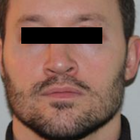
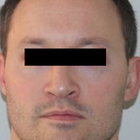
Front view
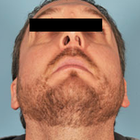
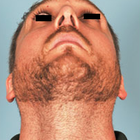
Front view
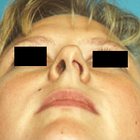
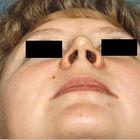
Front view
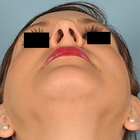
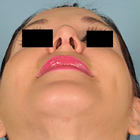
Front view
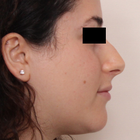
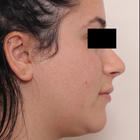
Full-side view
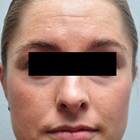
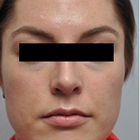
Front view
WHY US?
At Medijump, we're making medical easy. You can search, compare, discuss, and book your medical all in one place. We open the door to the best medical providers worldwide, saving you time and energy along the way, and it's all for FREE, no hidden fees, and no price markups guaranteed. So what are you waiting for?

Free

Best Price

Widest Selection

Risk-Free
What you need to know about Septoplasty in Cyprus
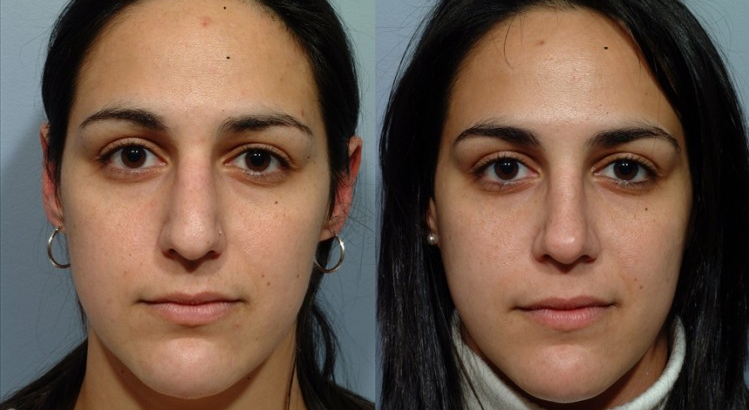
A septum is a bone and cartilage that separates the nasal cavity of the nose. When your nasal septum is off-center, crooked, or moved to one side of your nose, it is a condition known as a deviated septum and can make breathing difficult. To correct this condition, you may need to undergo Septoplasty, where your septum will be straightened to allow better airflow through your nose. This surgery is the only way to fix a deviated septum. However, septoplasty may also be performed to treat long-term sinusitis, remove nasal polyps, or treat other conditions that block the nasal airways. Sometimes, surgeons also recommend this surgery to stop recurrent nosebleeds and facial pains. For conditions other than deviated septum, surgeons often only recommend septoplasty after ruling out other treatments.
What does a Septoplasty Procedure Involve?
A deviated septum is common, but when the condition is severe, it can block one side of your nose and reduce airflow. It can also contribute to crusting or bleeding. If you experience difficulty breathing through your nose that significantly affects your life, you may want to consider septoplasty. Before the surgery, your doctor will review the details of the surgery and ask you to complete some routine tests, such as a blood test, electrical heart tracing, or X-ray. Be sure to tell your doctor if you have any possible allergies. To prepare for the procedure, you may need to stop taking certain medications at least two weeks before the surgery because they can increase your risk of excessive bleeding and the medications include aspirin, ibuprofen, and other blood-thinners.
Septoplasty can be carried out under local anesthesia or general anesthesia. If you have the surgery under local anesthesia, you should not eat or drink anything after midnight the night before the procedure. Not eating and drinking will prevent you from vomiting and choking if the anesthesia nauseates you during surgery. Your surgeon will start the surgery by making an incision on one side of your nose to access the septum. They will then lift the mucosa lining that covers the cartilage and bone. Next, they will reshape the cartilage and bone to move the deviated septum to the correct position. Extra pieces of bone or cartilage that make barriers will be removed. Then, they will reposition the mucous membrane. You may need stitches to hold the septum and membrane in place. Soft silicone splints are sometimes inserted inside the nostrils to support the septum. The whole procedure takes between 30 to 90 minutes to complete.
How Long Should I Stay in Cyprus for a Septoplasty Procedure?
Septoplasty is an outpatient procedure, which means you will likely go home on the same day of the surgery after the anesthesia has worn off unless major complications arise. However, you should stay in the Cyprus for 3-4 days for the initial recovery and follow-up checkups. If your surgeon places splints in the nose, they will be removed within seven days. You may return home when your surgeon allows you as long as there is no complication.
What's the Recovery Time for Septoplasty Procedures in Cyprus?
You may feel drowsy for a few hours following the surgery and you may also feel pain. However, your surgeon will prescribe medication to help with the pain. Some congestion and bleeding can occur after you are discharged from the hospital as your body recovers, but these symptoms should be gone in 2 weeks. The recovery period varies from one person to another. In general, you should be able to return to work within a few days, but you should allow at least three weeks before going back to your full normal routine. You should also limit your physical activities such as exercise for several weeks to minimize swelling and speed up healing because intense physical activities can increase your blood pressure and lead to bleeding.
What sort of Aftercare is Required for Septoplasty Procedures in Cyprus?
Your doctor will give you post-operative care instructions, which you will need to follow, The wound on your nose will heal fairly quickly, and your breathing will improve shortly after the procedure. For a quicker recovery, you may need to elevate your head at night to keep the swelling down, wear a button-up shirt so you do not need to pull clothing over your head, and do not blow your nose for at least two to three days after surgery. Avoid drinking alcohol, smoking tobacco, returning to work too soon, strenuous activities, and being in a crowd where people are smoking or coughing.
What's the Success Rate of Septoplasty Procedures in Cyprus?
The success rate for septoplasty is high, with up to 85% of people experiencing a significant improvement in their nasal blockage after surgery.
However, some people will require a second surgery if they are not satisfied with the results. Septoplasty is a very low-risk procedure, but you should be aware of the possible complications and side effects and these risks can include:
- Bleeding in small amounts is common, but in rare cases, excessive bleeding may occur.
- Infection can occur after septoplasty because the nose is not a sterile environment.
- Toxic shock syndrome is a very rare and life-threatening infection.
- Septal perforation is a small hole that can sometimes develop in the nasal septum during or after the surgery.
- Spinal fluid leak and it is extremely rare.
Other risks such as scarring, and altered nose shape, discoloration of the nose, a decreased sense of smell, tooth or nose numbness, and continuing symptoms are also possible. Other than following your surgeon’s aftercare instructions, keeping the nose clean and washing your hands often can reduce the risks.
Are there Alternatives to Septoplasty Procedures in Cyprus?
Although most conditions of a deviated septum can only be treated by septoplasty, there are nonsurgical treatments for other nasal blockages to help you breathe better. If your nasal blockage is caused by an allergy, you may take antihistamines from your doctor or over-the-counter. In cases of bacterial infection, your doctor can prescribe antibiotics to help clear the nasal airways.
Whilst the information presented here has been accurately sourced and verified by a medical professional for its accuracy, it is still advised to consult with your doctor before pursuing a medical treatment at one of the listed medical providers
No Time?
Tell us what you're looking for and we'll reachout to the top clinics all at once
Enquire Now

Popular Procedures in Cyprus
Prices Start From $1,945

Prices Start From $101

Prices Start From $192

Prices Start From $500

Recommended Medical Centers in Cyprus for Septoplasty

- Interpreter services
- Translation service
- Religious facilities
- Medical records transfer
- Medical travel insurance
- Health insurance coordination
- TV in the room
- Safe in the room
- Phone in the room
- Private rooms for patients available

- Interpreter services
- Translation service
- Religious facilities
- Medical records transfer
- Medical travel insurance
- Health insurance coordination
- TV in the room
- Safe in the room
- Phone in the room
- Private rooms for patients available

- Interpreter services
- Translation service
- Religious facilities
- Medical records transfer
- Medical travel insurance
- Health insurance coordination
- TV in the room
- Safe in the room
- Phone in the room
- Private rooms for patients available

- Interpreter services
- Translation service
- Religious facilities
- Medical records transfer
- Medical travel insurance
- Health insurance coordination
- TV in the room
- Safe in the room
- Phone in the room
- Private rooms for patients available

- Interpreter services
- Translation service
- Religious facilities
- Medical records transfer
- Medical travel insurance
- Health insurance coordination
- TV in the room
- Safe in the room
- Phone in the room
- Private rooms for patients available

- Interpreter services
- Translation service
- Religious facilities
- Medical records transfer
- Medical travel insurance
- Health insurance coordination
- TV in the room
- Safe in the room
- Phone in the room
- Private rooms for patients available

- Interpreter services
- Translation service
- Religious facilities
- Medical records transfer
- Medical travel insurance
- Health insurance coordination
- TV in the room
- Safe in the room
- Phone in the room
- Private rooms for patients available

- Interpreter services
- Translation service
- Religious facilities
- Medical records transfer
- Medical travel insurance
- Health insurance coordination
- TV in the room
- Safe in the room
- Phone in the room
- Private rooms for patients available

- Interpreter services
- Translation service
- Religious facilities
- Medical records transfer
- Medical travel insurance
- Health insurance coordination
- TV in the room
- Safe in the room
- Phone in the room
- Private rooms for patients available

- Interpreter services
- Translation service
- Religious facilities
- Medical records transfer
- Medical travel insurance
- Health insurance coordination
- TV in the room
- Safe in the room
- Phone in the room
- Private rooms for patients available
Septoplasty in and around Cyprus
Cyprus is an island country in the Mediterranean Sea. The country is famous for its mineral wealth, splendid wines, dazzling beaches, and compelling culture. In addition, Cyprus is filled with classical ruins and century-old monasteries, and as the legendary birthplace of Aphrodite, it is also steeped in mythology. Due to its huge array of modern private medical centers equipped with excellent service, cutting-edge technology, and skilled doctors, Cyprus is also a thriving medical tourism destination. Foreign patients from all around the globe come to this country for a vast range of medical treatments, particularly bariatric surgery, cardiology, cosmetic and plastic surgery, and fertility treatments. Its spa and well-being resorts are also welcoming an increasing number of international medical tourists.
Popular Parts of Cyprus
The majority of tourists start their trip to Cyprus in Larnaca, it is the oldest city in Cyprus. It has a vast array of historical monuments, including Ayios Lazaros (the Church of Saint Lazarus), Stavrovouni Monastery, and Larnaca Medieval Castle. Besides its ancient buildings, Mackenzie Beach and Larnaca Marina are also popular among tourists. Not too far from Larnaca is Paphos, a charming city with exquisite natural beauty and all sorts of ancient ruins. The most popular attractions in this city include the Tombs of the Kings, the Old Town, Early Christian Basilica-St Paul’s Pillar, and Paphos UNESCO Archaeological Park. Nicosia, Cyprus’ capital, is also a popular destination.
Weather and Climate in Cyprus
Cyprus experiences a Mediterranean climate with four seasons and over 300 days of sunshine a year. The summer is long, warm, and dry, lasting from mid-May to mid-October. The winter starts in December and ends in February, bringing mild temperatures and more rain showers. Autumn and spring are short, but there is good weather.
Getting around in Cyprus
The main international gateway to Cyprus is Larnaca International airport. It serves international flights to many cities around Europe and the Middle East, including Kyiv, Abu Dhabi, London, and Moscow. In the south, the intercity bus system is reliable and great, but in the north, the bus services are often unreliable and do not seem to follow a timetable. Taxis are a safe and relatively inexpensive option. In the south, there are three types of taxi services: urban, trans-urban or interurban (shared and can be booked), and rural. In the north, taxis are only available in the main towns. Inside towns, buses are the best way to get around for those looking for a more affordable option. Taxis are more expensive, but they do offer more flexibility.
Tourist Visas in Cyprus
Nationals of EU countries, the United States, Australia, Canada, Britain, Iceland, Japan, and several other countries do not need a visa to visit and stay in Cyprus for up to 90 days. Other countries not listed in the visa-free agreement need to apply for a visa before entering Cyprus. It is best to consult the Cypriot Ministry of Foreign Affairs or contact the embassy to learn more about visa requirements.
Additional Information
- Local Currency: The euro (€) has been the official currency of Cyprus since 1 January 2008. The exchange rate from €1 is approximately US$1.17.
- Money & Payments: It is easy to find reliable ATMs in large towns and tourist areas. Major credit cards, such as Visa and MasterCard, are widely accepted in larger restaurants, shops, and hotels. However, if you plan to go to smaller towns or villages, it is best to ensure you have cash. Tipping is expected most of the time. Tip at least 10% of the bill, and at least 5% or round up to the nearest euro for taxi drivers.
- Local Language: Around 80% of Cypriots speak Greek as their first language, while Turkish is spoken by 10% of the population. English is widely spoken, especially in tourist areas.
- Local Culture and Religion: The main religion of Cyprus is Greek Orthodox, but Islam is the most prominent religion in the north.
- Public holidays: Some of the most celebrated holidays in Cyprus include Ohi Day, Christmas Day, Boxing Day, New Year’s Day, Epiphany, Clean Monday, Cyprus National Day, and Independence Day.
Popular Searches
- Plastic Surgery in Thailand
- Dental Implants in Thailand
- Hair Transplant in Thailand
- Breast Augmentation Thailand
- Gastric Sleeve in Thailand
- Gender Reassignment Surgery in Thailand
- Laser Hair Removal in Bangkok
- Botox in Bangkok
- Dermatology in Bangkok
- Breast Augmentation in Bangkok
- Coolsculpting in Bangkok
- Veneers in Turkey
- Hair Transplant in Turkey
- Rhinoplasty in Turkey
- Stem Cell Therapy in Mexico
- Rhinoplasty in Mexico
- Liposuction in Mexico
- Coolsculpting in Tijuana
- Rhinoplasty in Korea
- Scar Removal in Korea
- Gastric Sleeve in Turkey
- Bone Marrow Transplant in India
- Invisalign in Malaysia
- Plastic Surgery in the Dominican Republic
- Tummy Tuck in the Dominican Republic
- Plastic and Cosmetic Surgery in Poland
- Rhinoplasty in Poland
- Hair Implant in Poland
- Dental Implants in Poland
- IVF in Turkey





